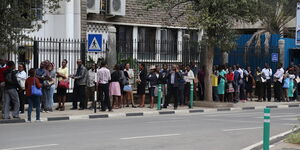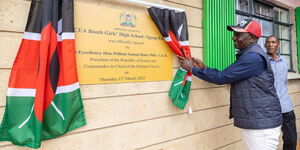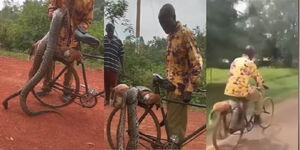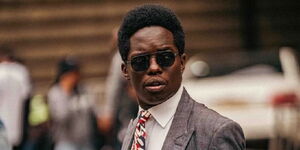Muthoni Nyanjiru was a woman who did not suffer cowards. Almost 100 years after she demonstrated that it was better to die on your feet than live on your knees, only a handful of people know her name.
Nyanjiru's legacy begins in colonial Nairobi in the year 1922. If maisha ya Nairobi ni ngumu (life in Nairobi is hard) is today's refrain, you can perhaps imagine how much harder it was back then.
Early Nairobi inhabitants had moved to the young city to make money for the enforced 1901 hut tux. Nyanjiru’s story begins with the arrest of Harry Thuku, a vocal member of the then-recently-formed East African Association (EAA).
Thuku was a staunch opposer of the Hut Tax, arguing that it facilitated forced labour for Africans who had to look for the money to cover it.
The arrest of Thuku pulled crowds of loyal supporters who came to camp out at the Kingsway Police Station (now Central Police Station) where he was held.
There were hundreds of people present all peacefully demanding the release of Thuku.
A bizarre thing happened during that particular protest, about 200 women, including Nyanjiru, underwent the traditional oathing ceremony that was reserved for men.
At the height of the protest, there were thousands of people waiting outside the station for Thuku's release.
After bearing the sun and the heat of waiting outside for days, the crowd was informed by a cohort that had met with the colonial administration that Thuku would come to no harm. That the government had informed them that it only intended to hold him until they could grant him a hearing. They urged people to go home.
At this point, many of those present accused the delegation of being bought. But by this time, a large chunk of the crowd, mostly men, was already getting ready to leave.
Many of those present had already resolved that their efforts had been in vain.
This was Nyanjiru's moment. After waiting under the open skies for days, she had no intention of leaving without a fight.
She moved to the front of the crowd and utilised a traditional Kikuyu insult known as guturamira ng’ania by lifting her dress over her head and demanding:
"You take my dress and give me your trousers. You men are cowards. Our leader is in there. Let's get him!"
Her cries reignited the crowd, especially the women, who rushed forward to challenge the officers standing guard. The men who had retracted were shamed into returning and joined the charged women.
The askaris opened fire on the charging crowd, resulting in multiple casualties and many more people injured. The official death count stands at 21, with 4 of those being women.
Nothing is known of the other women who took part in the protest, or who died. Muthoni Nyanjiru was among the first to fall.
Her courage, bravery, and defiance in the face of injustice remains part of what fueled the resistance years later.












